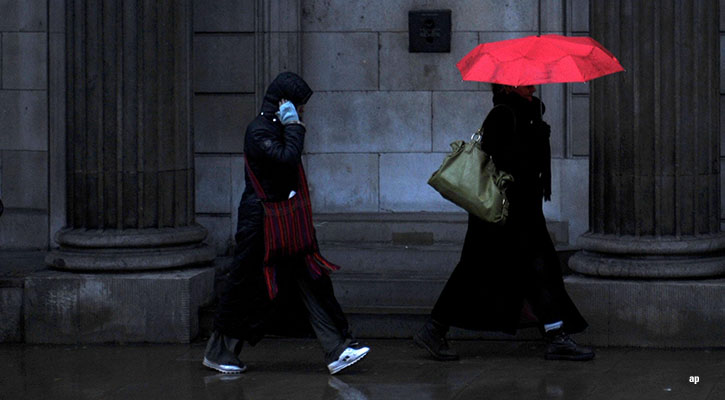I had a dream this week. It was not quite up to the standard of Martin Luther King – in fact in one respect it was quite nightmarish. The general election was on, Labour gained 30 seats and Gordon Brown was back as prime minister.

Any dips in share prices will be a reason for investing while the going is good

There will have to be an election within the next 16 months – how quickly it now seems to be looming – and Labour may well gain 30 seats or more but at least we will be spared the horror of Gordon Brown’s return to power.
Elections in the UK and in the United States will increasingly dominate the investment scene as 2014 progresses. The result will be uncertainty and a corresponding level of volatility in stock markets. That will be no bad thing for investors as any dips in share prices will be a reason for investing while the going is good.
I shall be looking to use up my full ISA entitlement as early in the next financial year beginning April as possible and I urge other investors to do likewise. A consensus is growing that the FTSE 100 index will set a new high above 7,000 points this year and that will indeed happen. It is just a question of when.
In the United States, I expect the political paralysis that saw the government shutting down at the end of 2012 to continue. The Tea Party wing of the Republican party backed off over Christmas with great reluctance and only as far as was expedient. They will be fighting next November’s mid-term elections with increased vengeance.
Although Barrack Obama is secure as president for best part of three years, after which he must step down, one third of the Senate and all of the House of Representatives will be up for election in November. The Republican majority in the House will render him ineffective in the meantime. The Tea Party is driven not only by ideology but also by a hatred of Obama. This is personal.
Even if by some unexpected chance the Democrats keep control of the Senate and snatch a majority in the House, Obama will be entering this final two years as president and eyes will increasingly be looking to the potential next incumbent in the White House.
From the point of view of investors, however, this is not a doomsday scenario. We in the UK lived through five years of paralysed government in the 1990s when John Major accidentally won the 1992 general election and didn’t have any policies prepared. I’m not sure we fared any worse economically than we do when the government does know what it is doing. On the contrary, it was the one decisive decision – to join the precursor to the euro – that caused economic mayhem.
On the negative side there will be more fights over the US Budget, which will send Wall Street lower. Further tapering of the US quantitative easing programme will also probably depress shares temporarily, although much of the effect has surely been factored into share prices already and one can hope that the realisation will eventually dawn that tapering is to be welcomed warmly.
Back home electoral events will come sooner. First we will have the European Union elections in May and it will be amazing if UKIP fails to do well, possibly getting more votes than any other party. I would expect such an event to send the FTSE 100 sharply lower, given that it would create enormous political uncertainty and would raise the possibility of the UK leaving the EU.
We also have the referendum on Scottish independence looming. That should jar a few nerves, especially if the vote is in favour of leaving the UK. I think that in the end Scottish voters will baulk at a trip into the unknown but it certainly could happen.
After that we will be into the final year of the current parliament, which I expect to run its full course. Neither the Conservatives, trailing Labour in the polls, nor the Liberal Democrats, trailing UKIP as well as their main rivals, can risk pulling the plug.
In any case, while the Republicans and Democrats in the US have pulled further apart over the past 30 years, the three main political parties in the UK have edged closer together. Economic policy will be dictated largely by the struggle to get back on an even keel, whatever the individuals in government or shadow positions may wish for.
We are quite likely to have another coalition government, though possibly with Labour and Liberals adding up to a majority. This at least puts a brake on a Labour government letting spending run out of control.
An exciting year is underway. I believe that stock markets will edge higher, with very sharp dips providing buying opportunities in what will be a generally upward trend.
Rodney Hobson is a long-term investor commenting on his own portfolio; his comments are for informational purposes only and should not be construed as investment advice.


























